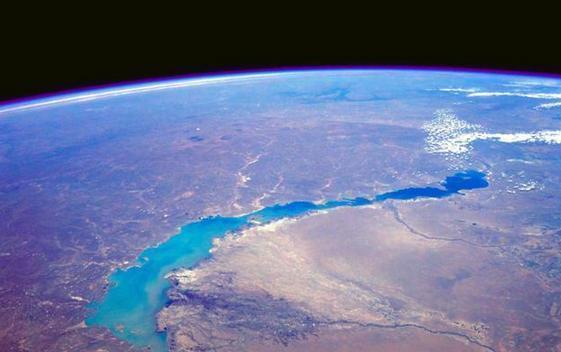In the late Qing dynasty, internal and external troubles were worrisome. Internal officials were corrupt and royal life was extravagant. The invasion of external powers is difficult to resist. Wars of aggression have been taking place all along, the territory has gradually been eroded, and the Qing government has signed a series of treaties that have lost power and humiliated the country for temporary peace. After 1865, the Qing Dynasty faced a new dilemma, known in history as the frontier crisis of the Tongguang years. At that time, the northwest frontier was sparsely garrisoned, and Tsarist Russia was looking at the tiger, and Britain also wanted to take advantage of the opportunity to annex. In the subsequent coastal defense issue, Tsarist Russia seized the opportunity to invade and occupy Ili, Xinjiang. But Xinjiang has always been China's territory.

After the outbreak of the coastal crisis, the Huai army led by Li Hongzhang encouraged the Qing government to vigorously invest in naval construction, advocating "temporarily abandoning the outside of the customs and clearing the inside of the customs." Such a move was strongly opposed by Zuo Zongtang, who believed that Xinjiang could not be discarded, and Xinjiang had been a very important strategic place since ancient times. The so-called "those who emphasize Xinjiang, so they protect Mongolia, those who protect Mongolia, so they defend the Beijing Division." The temporary abandonment of Xinjiang is a short-sighted move, which not only hurts the people's hearts, but also encourages the arrogance of foreign invaders and is extremely unfavorable to coastal defense.
At that time, Wen Xiang, the minister of military aircraft, and Wang Wenshao, the inspector of Hunan, also vigorously supported Zuo Zongtang's opinion of strengthening the defense of Sai. Therefore, Empress Dowager Cixi eventually appointed Zuo Zongtang as the minister of Chincha to supervise all military affairs in Xinjiang. In March 1876, Zuo Zongtang personally led the three-way army to approach Xinjiang, and in order to show his determination before leaving, Zuo Zongtang carried the coffin to fight, and wherever the coffin went, he would go there. After arduous and unremitting battles, Zuo Zongtang finally succeeded in recovering all of Xinjiang except Ili in 1878.
In 1882, the Qing government negotiated with Tsarist Russia and recaptured Ili. At zuo Zongtang's suggestion, the Qing court established Xinjiang Province. In 1884, Xinjiang Province was officially established. Xinjiang has been China's territory since ancient times, and in the internal official dispute between "coastal defense" and "Cypriot defense", it was almost abandoned by the Qing government, thanks to Zuo Zongtang Xinjiang was re-recovered.
After the founding of New China, due to the great development of industry, hundreds of industries were waiting to be revitalized. Researchers actively searched for oil resources and eventually discovered them in Xinjiang. At present, the oil resources explored in Xinjiang are tens of billions of tons, accounting for 30% of China's total oil resources. Later, the Karamay Oilfield made much contribution to the take-off of the motherland, and the policy of west-to-east gas transmission also accelerated the development of the motherland and added a heavy stroke to China's modernization drive.
Therefore, we would like to give special thanks to Zuo Wenxianggong , Zuo Zongtang. Dear netizens, what do you think about this?